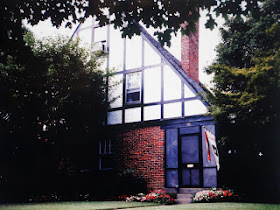 |
| Beautiful brass railing welcomes you to the Lancaster Railroad Station in Lancaster, PA |
 |
| Waiting room lobby above the railroad tracks. |
 |
| Felt sculpture known as Jötunn by Paolo Puck. |
 |
| "Vinegar Tom" |
 |
| Paolo Puck works on one of his felt sculptures. |
 |
| One of Paolo's wooden creations. |
 |
| A young Amish child is waiting for the train. |
 |
| Ticket booth at the station. |
 |
| Getting ready to leave. Did I slide down the railing? No comment! |










































